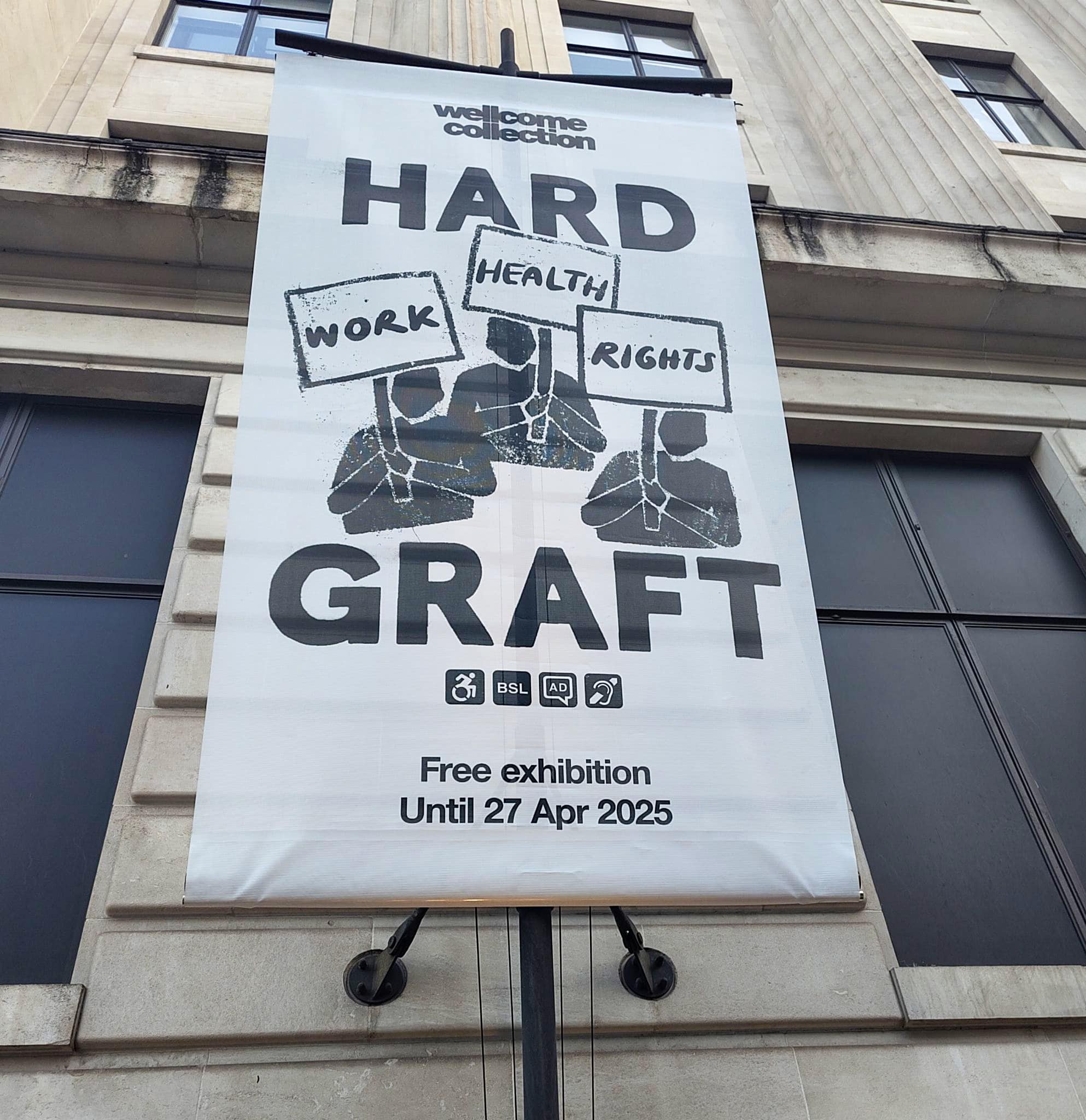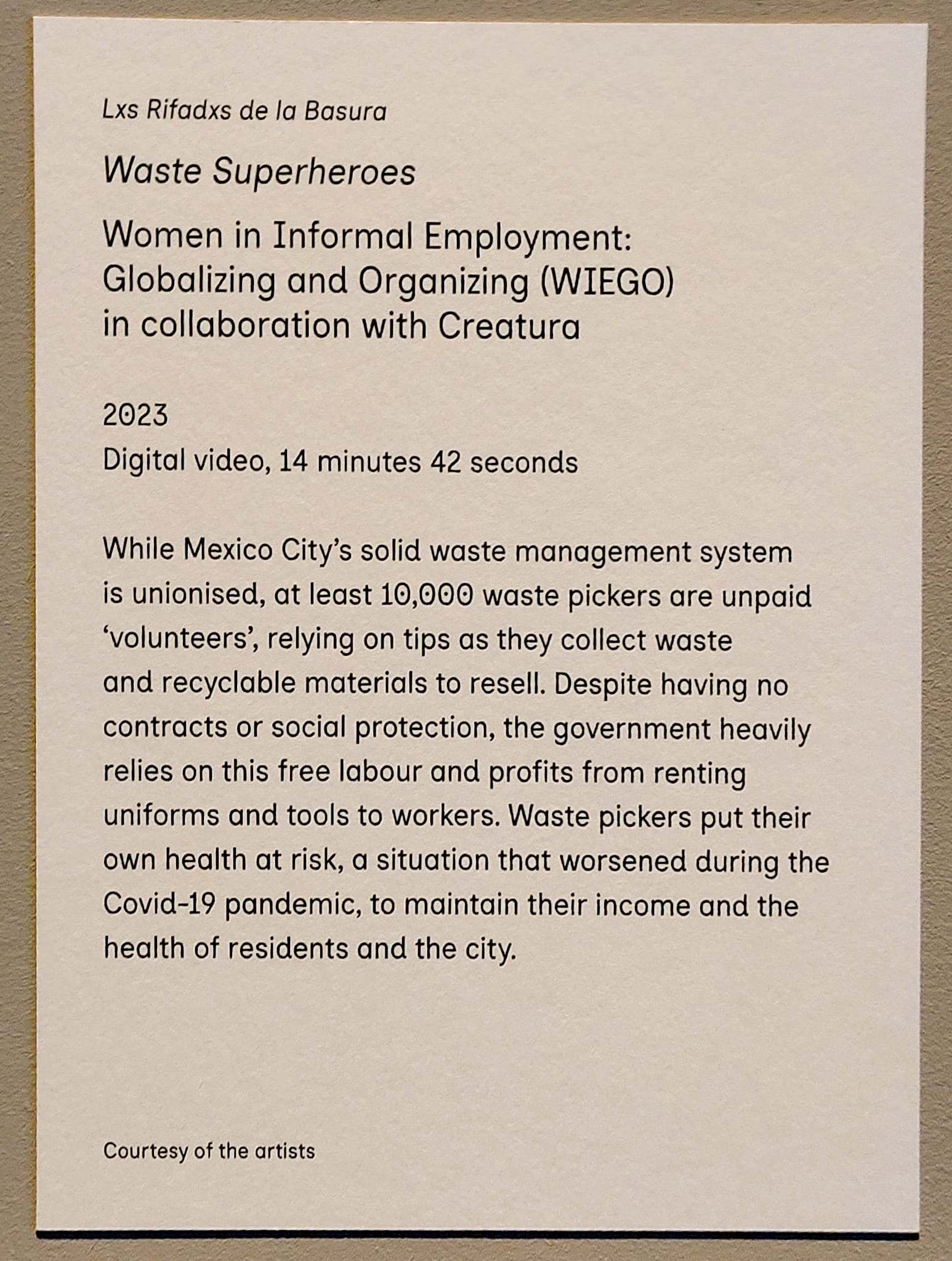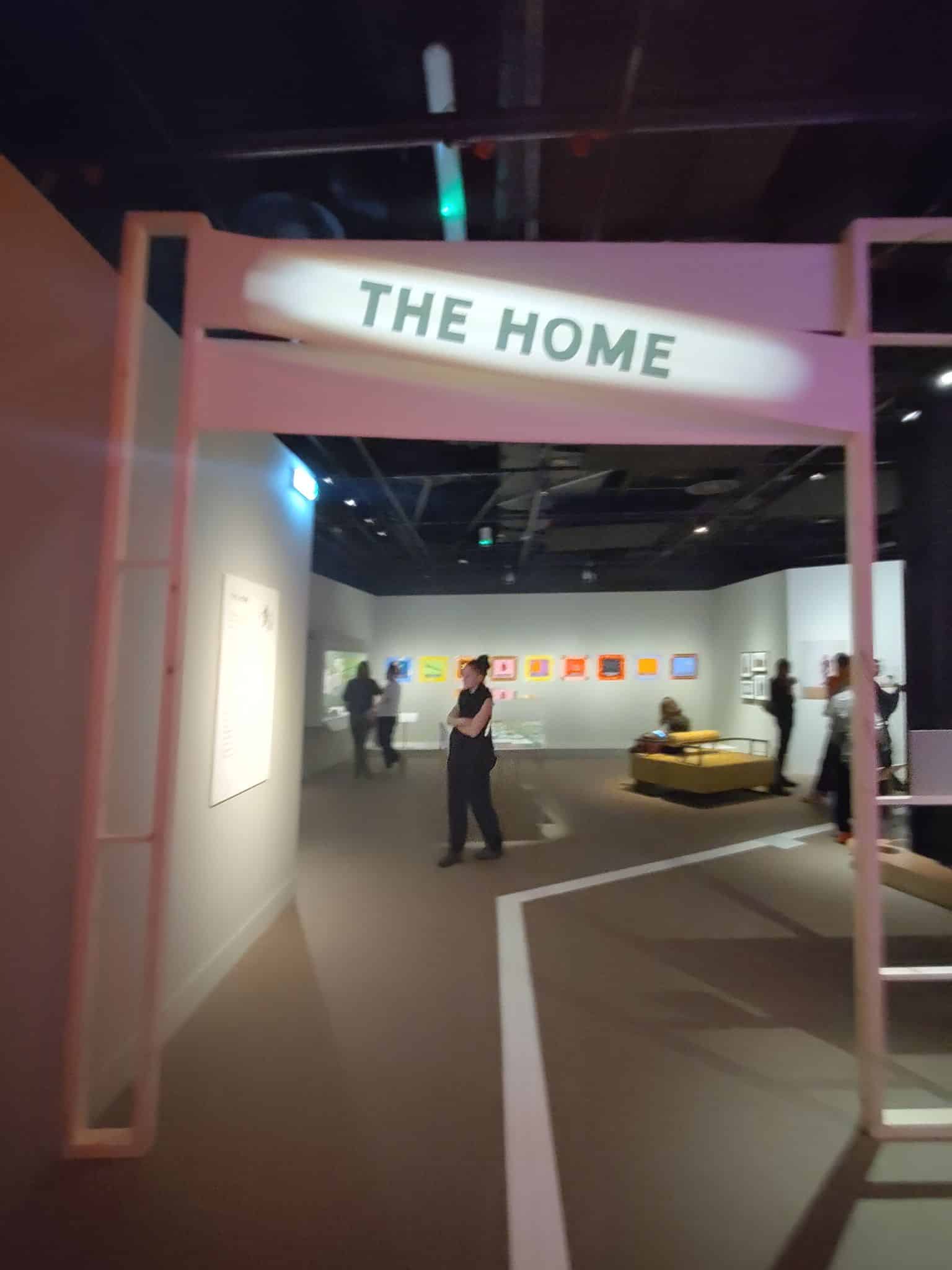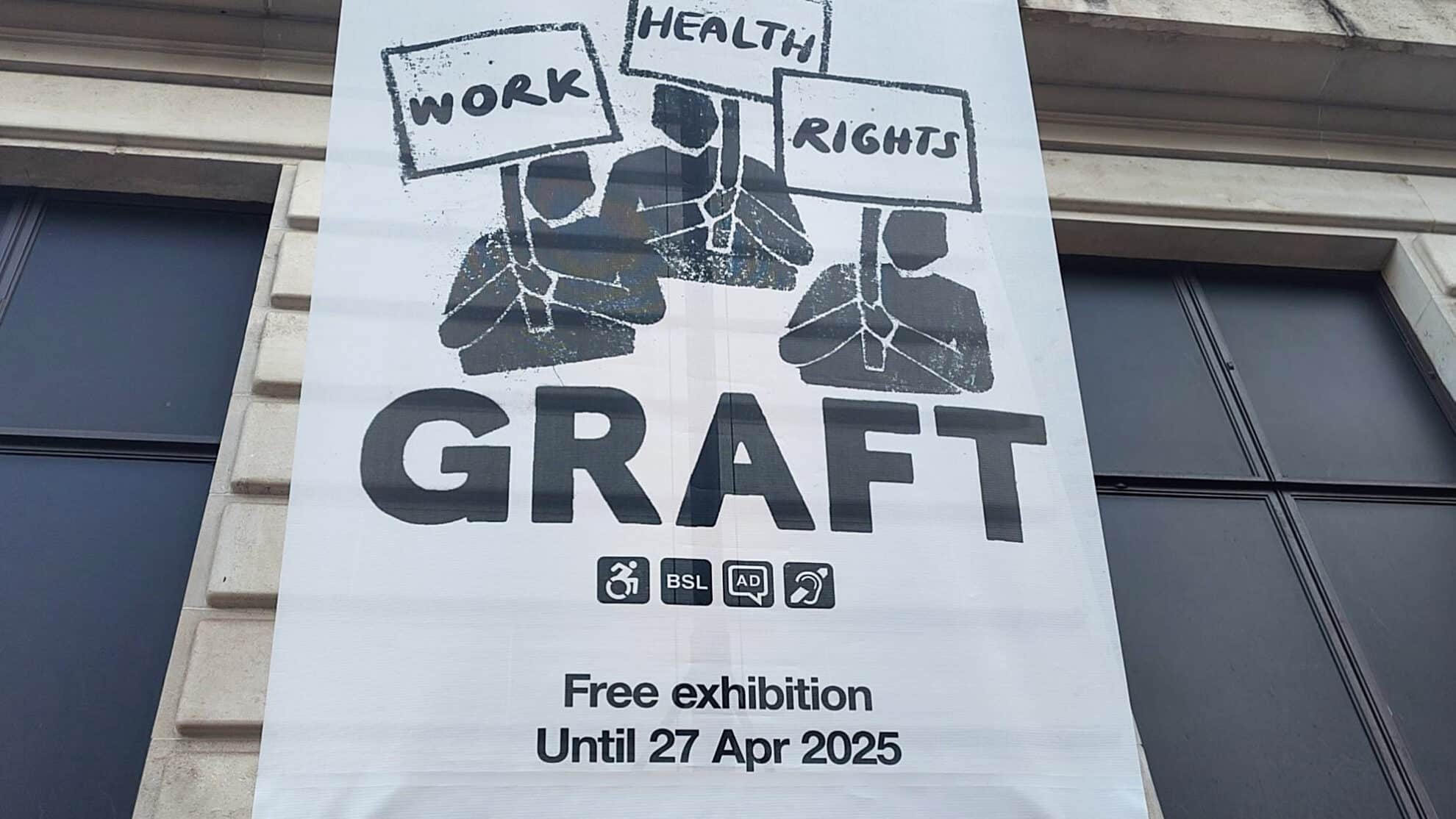
“Hard Graft: Work, Health and Rights” at the Wellcome Collection. Credit: Christy Adeola Braham
Art exhibitions are a powerful tool for expression, and for creatively communicating issues of social injustice to new, diverse and curious audiences. Recently, WIEGO contributed to a new exhibition at the Wellcome Collection in central London, UK, entitled “Hard Graft: Work, Health and Rights”.
With input from WIEGO’s Mexico City Focal City, Social Protection and Urban Policies programmes, Hard Graft traces the history and politics of marginalized and undervalued work from the plantation economies of the Americas, Africa and Asia, to prison labour, and to workers in the informal economy on public streets and in private homes. The exhibition unearths the colonial legacies of informal forms of work, and explores the ways in which race, ethnicity and gender, intersecting with class, have shaped the historical and modern workplace and its risks to workers’ health.
Exhibition Brings New Visibility for Mexico City Waste Picker Documentary - Lxs Rifadxs de la Basura

WIEGO’s film, “Lxs Rifadxs de la Basura”, made in collaboration with Creatura, is featured in Hard Graft. Credit: Christy Adeola Braham
Hard Graft prominently features Lxs Rifadxs de la Basura, a documentary produced by WIEGO and Creatura which follows the work of waste pickers in Mexico City who are classified as ‘volunteers’ while collecting waste and recyclable materials from residential areas of the city. Lxs Rifadxs loosely translates as “superheroes”, because the waste pickers put their own health at risk in protecting the health of their city and its communities, yet work without social protection or political recognition. They source their own personal protection equipment, manage unsorted waste that exposes them to numerous biological and chemical hazards, and survive on unstable incomes.
The documentary features Ivan Calnacasco – a well-respected member of Lxs Rifadxs de la Basura, advocate for waste pickers’ rights and dignity, and a comrade of WIEGO – who passed away in July 2024, prior to the opening of the exhibition.
Elsewhere in the exhibition, sanitation workers and street vendors in informal employment across the world are given a spotlight. Facing a lack of urban health infrastructure, and the threat of gentrification and privatization of public services such as hospitals, water and waste management systems, workers engaged in these forms of labour continue to face social and political exclusion, stigma, and risks to their health and livelihoods.

A section of Hard Graft dedicated to hidden labour in private homes entitled, “The Home”. Credit: Christy Adeola Braham
Workers in the informal economy who work in private households – most notably, domestic workers – are also featured in Hard Graft. The exhibition highlights the politics of both paid and unpaid, highly-feminized domestic labour, and brings urgent attention to the care economy. Work within the care economy is hidden, marginalized and hyper-exploited, and often comes with exposure to infectious disease agents, harsh chemicals, back injuries and other ergonomic strains, as well as physical, sexual and/or psychological violence – while workers in the care economy continue to lack political recognition, access to health and care services, and social protection systems.
Hard Graft is centered around global workers’ struggles, documenting the impacts of work on the human body, making visible the deep connections between workers’ health and the social, political and cultural perceptions of the informal economy and, importantly, celebrating workers’ collective resistance and power.
‘Hard Graft: Work, Health and Rights’ is now open at Wellcome Collection, London (UK), until 27 April 2025. Entry to the exhibition is free. For more information about the exhibition – including digital exhibition guides, side events and tours – please click here.
